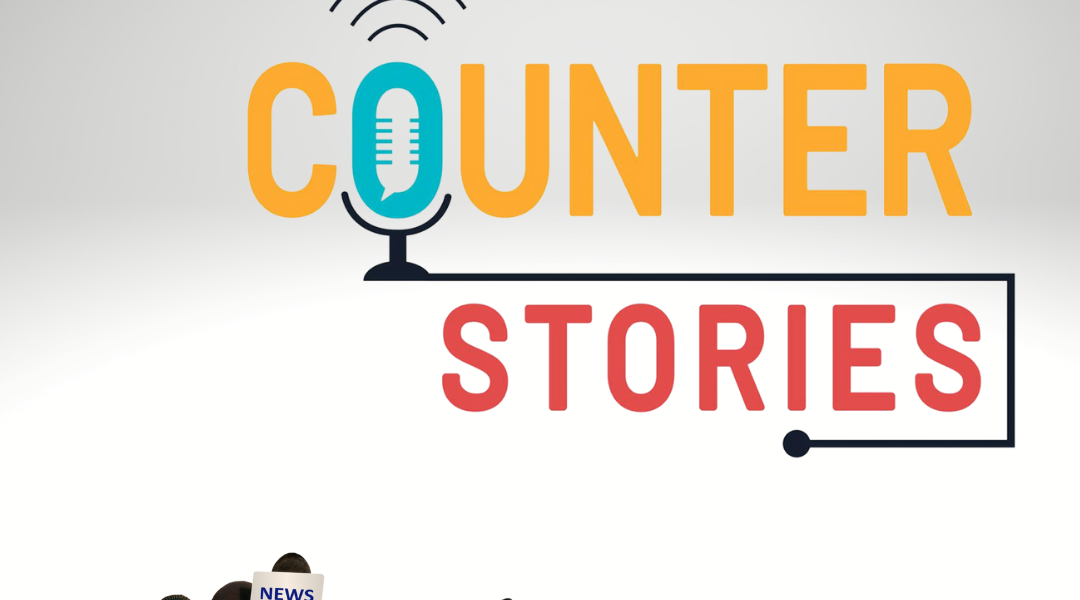The disparity in media coverage for missing and murdered indigenous women and relatives cases has once again been brought to the surface.
In the latest episode of the Counter Stories Podcast, the hosts and guests tackle the issue of disparities in media coverage head on. Podcast host, Luz Maria Frias, explains.
Luz Maria Frias: Today’s theme is going to be reviewing actually something that’s been in the news pretty much 24/7, so to speak, which is the coverage around the disappearance of Gabby Petito.
Gabby Petito had gone missing and her remains recovered in Wyoming. Her case has gotten major and national attention.
Luz Maria Frias: We really want to contextualize this and lift up the inconsistencies, the biases in the media, and the treatment of a white centered narrative versus the rest of our community who continues to suffer with missing and murdered members of our own communities and how that doesn’t receive any media or very little media.
Luz Maria Frias and the rest of Counter Stories stress that the issue of media coverage they’re raising in no way is aiming to diminish Gabby Petito’s case. Instead, the erasure of Native women and relatives in the media among all overlooked communities is compounding and reinforcing that erasure.
Luz Maria Frias: In the state of Wyoming over the last decade, there’ve been 710 indigenous people, mostly girls, and have not received the attention, the media attention nor the investigation, as you said, by law enforcement. Very different than what’s going on here.
Korina Barry is the NDN Action Managing Director at NDN Collective and a guest on the podcast. She recounts a personal connection to MMIW.
Korina Barry: There’s also, yeah, the reality of the complete lack of coverage for indigenous women, for our two-spirit relatives, for black women, other women of color. What I thought of right away and why I say that trauma was felt as I thought of my cousin, Becky, Rebecca Anderson. She was murdered back in 2015 right here in South Minneapolis, right off of Lake Street, 12th and Lake Street.
Korina remembers her and her family scrambling, looking for ways to contact journalists to get the word out, get some media coverage.
Korina Barry: That wasn’t being covered at all. How also to name with this, the lack of police response and engagement for her case. My auntie, just again, she didn’t have any answers to the many questions she had. It was very evident that because of my cousin being an indigenous woman, that she wasn’t getting the same treatment or the same response or care within her case immediately. All of that, it was just like really, I think, triggering and that we see happen over and over again.
Another guest, Marisa Cummings, is the CEO of the Minnesota Indian Women’s Resource Center and shares her thoughts.
Marisa Cummings: This isn’t surprising. Settler colonial violence is rooted in white supremacy and gender-based violence. While I agree that there definitely needs to be room for our relatives that identify on the spectrum of identity which our people always have, I also know that our women have been specifically targeted since contact. I like to uplift our women and girls because we have been specifically targeted.
Marisa Cummings: We have been sex trafficked since contact. Even though Columbus never touched on what is now known as the United States of America, Columbus’ journals and those of his colleagues talk about getting girls as young as nine years old and trafficking them, and so this isn’t something we’re making up, this is something that’s in historical documents. We know that there’s always been an erasure of the original people of this land and our women as being oftentimes the backbone of our communities, the ones who carry life forward, the ones who bring life into the world, of course, we’re going to be targeted to erase ourselves or erase us from this land.
Entire Counter Stories episode can be found online at counterstoriespodcast.org and on all podcast platforms.
Listen to the full episode:
Leah Lemm reporting for Minnesota Native News.
Subscribe to Minnesota Native News in your favorite podcast app
- New Native Theatre’s 15th Year & REAL IDThis week, how REAL ID requirements impact Indigenous people, especially Two-Spirit individuals. Also, New Native Theatre’s latest play runs April 16-May 4.
- Ziigwan Biidaajimowin (Spring News): NACC Issues Call for Artists and Little Earth Kicks Off American Indian Month with a ParadeThis week, Minneapolis’s Native American Community Clinic (NACC) seeks artists to commission pieces for their new building. Plus, nearby, the Little Earth of United Tribes housing community will kick off May’s American Indian Month with a celebration organized in part by the Minneapolis Public Schools American Indian Youth Council, Ogichida Oyate


 Tribes Push for Vaccines as Pandemic Passes Grim Milestone
Tribes Push for Vaccines as Pandemic Passes Grim Milestone